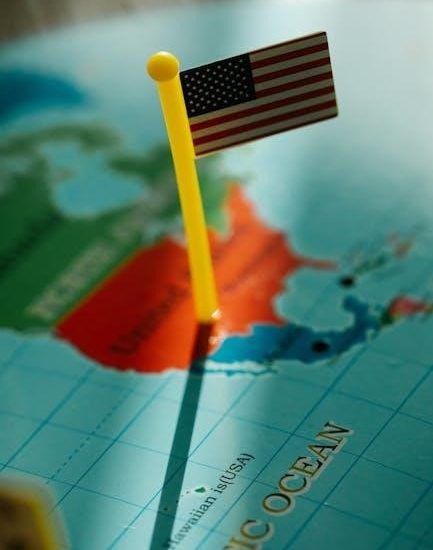Unit 7: Global Warfare ⸺ Study Guide
This unit examines global conflicts from 1900 to the present‚ focusing on World Wars I and II. It highlights shifting power dynamics‚ total war strategies‚ and societal impacts; Key topics include propaganda‚ trench warfare‚ and economic shifts shaping modern geopolitics.

Global warfare in the 20th century represents a transformative period in world history‚ marked by the rise of industrialized conflict and shifting geopolitical landscapes. The two World Wars‚ along with their causes and consequences‚ define this era. Total war became a hallmark‚ involving not only military engagement but also the mobilization of entire societies‚ economies‚ and cultures. Propaganda‚ technological advancements‚ and trench warfare characterized these conflicts‚ while the interwar period set the stage for further instability. The study of global warfare examines how nations leveraged resources‚ ideologies‚ and alliances to assert dominance. It also explores the human cost‚ including widespread devastation and the reshaping of international relations. Key concepts such as imperialism‚ nationalism‚ and militarism provide a framework for understanding the complexities of modern conflict. This unit provides a foundation for analyzing the dynamics of global warfare‚ its impact on societies‚ and its enduring legacy in shaping the modern world.
Causes of World War I
The outbreak of World War I was driven by a complex interplay of factors‚ including imperialism‚ nationalism‚ militarism‚ and the complex system of alliances. Imperialist rivalries over colonies and resources heightened tensions among European powers‚ while nationalist sentiment fueled ethnic and territorial disputes. Militarism‚ characterized by the buildup of armies and navies‚ created an atmosphere of preparedness for war. The formation of opposing alliances—the Triple Entente and the Triple Alliance—further polarized Europe‚ making a localized conflict in the Balkans‚ such as the assassination of Archduke Franz Ferdinand‚ a catalyst for global war. Economic competition and the rise of industrialized warfare also played significant roles. The Balkans‚ a region marked by ethnic tensions and competing claims‚ became a flashpoint‚ with the Great Powers drawn into the conflict. These underlying causes created a volatile environment in which a small incident could escalate into a broader‚ devastating war that reshaped the global order.
Conduct of World War I
World War I was characterized by the widespread use of trench warfare‚ with opposing armies dug in along extensive networks of trenches. This static form of combat led to devastating losses‚ as soldiers faced constant artillery bombardments‚ machine gun fire‚ and poison gas. The introduction of new technologies‚ such as tanks‚ aircraft‚ and submarines‚ marked a turning point in military strategy and warfare tactics. Total war became a reality‚ with governments mobilizing entire societies‚ including civilians‚ to support the war effort. Propaganda played a significant role in maintaining morale and recruiting soldiers. The war at sea‚ including the German U-boat campaign and the Allied blockade‚ disrupted global trade and exacerbated economic hardship. Key battles‚ such as the Battle of the Somme and Verdun‚ became symbols of the war’s brutality and futility. The conflict also saw the rise of conscription‚ with millions of men drafted into service. By 1918‚ the cumulative effects of four years of fighting led to the collapse of several empires and the eventual Allied victory.
Consequences of World War I
The end of World War I brought profound and far-reaching consequences. The Treaty of Versailles imposed harsh penalties on Germany‚ including heavy reparations and territorial losses‚ which fostered resentment and economic instability. The war led to the collapse of several empires‚ such as the Ottoman‚ Austro-Hungarian‚ and Russian empires‚ redrawing the global map and creating new nation-states. The Russian Revolution‚ triggered by the war‚ established the Soviet Union‚ while the United States emerged as a dominant world power. Economically‚ the war caused widespread inflation‚ unemployment‚ and poverty‚ exacerbating social unrest. The loss of millions of lives and the destruction of infrastructure left deep scars on societies. The war also led to the rise of fascist and nationalist movements‚ setting the stage for future conflicts. The establishment of the League of Nations aimed to prevent future wars but ultimately failed to address underlying tensions. Overall‚ World War I reshaped global politics‚ economies‚ and societies‚ leaving a legacy of instability that persisted for decades;
The Interwar Period (1918-1939)
The interwar period‚ spanning from 1918 to 1939‚ was marked by rebuilding efforts and rising tensions. The Treaty of Versailles left Germany economically devastated‚ fostering resentment and hyperinflation. This instability‚ combined with the global economic crisis of the Great Depression‚ created fertile ground for authoritarian regimes to rise. Fascist movements emerged in Italy under Mussolini and in Germany under Hitler‚ who exploited nationalist sentiment and promises of restoration. Meanwhile‚ the Soviet Union under Stalin pursued rapid industrialization and collectivization‚ solidifying its communist ideology. The League of Nations‚ established to maintain peace‚ proved ineffective in addressing aggression‚ such as Japan’s invasion of Manchuria and Italy’s conquest of Ethiopia. Appeasement policies by Britain and France‚ exemplified by the Munich Agreement‚ allowed Nazi Germany to annex territories without resistance. These events set the stage for the outbreak of World War II‚ as the global community failed to address the root causes of conflict. The interwar period was a time of fragile peace‚ characterized by economic turmoil‚ political extremism‚ and the erosion of international cooperation;
Causes of World War II

The causes of World War II were deeply rooted in the aftermath of World War I and the rise of aggressive nationalist ideologies. The Treaty of Versailles imposed harsh penalties on Germany‚ leading to economic collapse and widespread resentment‚ which Adolf Hitler exploited to rise to power. Fascist regimes in Italy‚ Germany‚ and Japan pursued expansionist policies‚ seeking to assert dominance and secure resources. Hitler’s aggressive actions‚ such as the remilitarization of the Rhineland and the annexation of Austria‚ went unchecked due to the policy of appeasement by Britain and France. The invasion of Czechoslovakia and the signing of the Munich Agreement further emboldened Hitler. Meanwhile‚ the League of Nations failed to prevent Japanese aggression in Manchuria or Italian conquests in Ethiopia‚ demonstrating its ineffectiveness. The global economic crisis of the Great Depression exacerbated tensions‚ fostering extremism and militarism. The rise of the Axis powers and their alliance system‚ coupled with the aggressive expansionist policies of Nazi Germany‚ Fascist Italy‚ and Imperial Japan‚ created a volatile environment. Additionally‚ Hitler’s ideology of Lebensraum (living space) and his desire to establish Aryan supremacy drove Germany’s aggressive expansion. These factors culminated in Germany’s invasion of Poland in 1939‚ triggering the outbreak of World War II.
Conduct of World War II
World War II was characterized by its global scale‚ technological advancements‚ and unprecedented brutality. The war saw the use of new military strategies‚ such as Blitzkrieg (lightning war)‚ which emphasized rapid movement and overwhelming force. Air power played a central role‚ with both Axis and Allied forces employing bombing campaigns to destroy enemy cities and industrial centers. The war also witnessed the horrors of genocide‚ particularly the Holocaust‚ in which millions of Jews and other minority groups were systematically murdered by the Nazis.
Theaters of conflict spanned Europe‚ Africa‚ and Asia‚ with major battles such as Stalingrad‚ El Alamein‚ and D-Day shaping the course of the war. The Pacific Theater saw intense fighting between Allied forces and Japan‚ including the use of atomic bombs on Hiroshima and Nagasaki in 1945. Total war strategies involved mobilizing entire societies‚ with civilians contributing to the war effort through rationing‚ propaganda‚ and labor in war industries. The conduct of the war was marked by technological innovations‚ such as radar‚ jet aircraft‚ and codebreaking‚ which significantly influenced outcomes. Ultimately‚ the war’s conduct reflected the devastating consequences of modern warfare on soldiers and civilians alike.
Consequences of World War II
World War II had profound and far-reaching consequences that reshaped the global landscape. The war resulted in an estimated 70-85 million fatalities‚ making it the deadliest conflict in human history. Many cities were reduced to rubble‚ and infrastructure across Europe and Asia was severely damaged. The Holocaust‚ carried out by the Nazis‚ led to the systematic murder of six million Jews and millions of others‚ prompting a global reckoning with genocide and human rights.
The war’s end marked the emergence of the United States and the Soviet Union as superpowers‚ setting the stage for the Cold War. The Yalta Conference and Potsdam Agreement led to the division of Europe into Eastern and Western blocs‚ with the Iron Curtain symbolizing the ideological divide. Decolonization accelerated as European empires weakened‚ leading to independence movements in Asia‚ Africa‚ and the Middle East.
The war also spurred technological advancements‚ such as jet engines‚ computers‚ and nuclear weapons. The establishment of the United Nations aimed to prevent future conflicts‚ while the Bretton Woods system laid the groundwork for global economic stability. The Marshall Plan rebuilt Western Europe‚ fostering economic recovery and political unity. These consequences profoundly shaped the modern world‚ leaving a lasting impact on geopolitics‚ economies‚ and societies.
The Cold War and Its Impact
The Cold War‚ spanning from 1947 to 1991‚ was a state of geopolitical tension between the United States and the Soviet Union. It was characterized by an ideological struggle between capitalism and communism‚ with neither side engaging in direct military conflict. Key events included the Berlin Blockade‚ the Cuban Missile Crisis‚ and the Korean and Vietnam Wars as proxy conflicts.
The arms race and space race defined much of the era‚ as both superpowers sought to demonstrate technological and military superiority. The Cold War also led to the formation of alliances‚ such as NATO and the Warsaw Pact‚ which divided Europe into opposing blocs. Proxy wars in regions like Afghanistan‚ Angola‚ and Nicaragua further extended the conflict’s reach.
Economically‚ the Cold War influenced global trade and development‚ with the U.S. promoting capitalism through initiatives like the Marshall Plan. The Soviet Union‚ meanwhile‚ supported socialist economies in Eastern Europe. The era also saw significant advancements in technology‚ particularly in nuclear weapons and space exploration.
The Cold War ended with the dissolution of the Soviet Union in 1991‚ marking a decisive victory for capitalist democracies. Its legacy includes the rise of the United States as the world’s sole superpower and ongoing geopolitical tensions rooted in the era’s divisions.
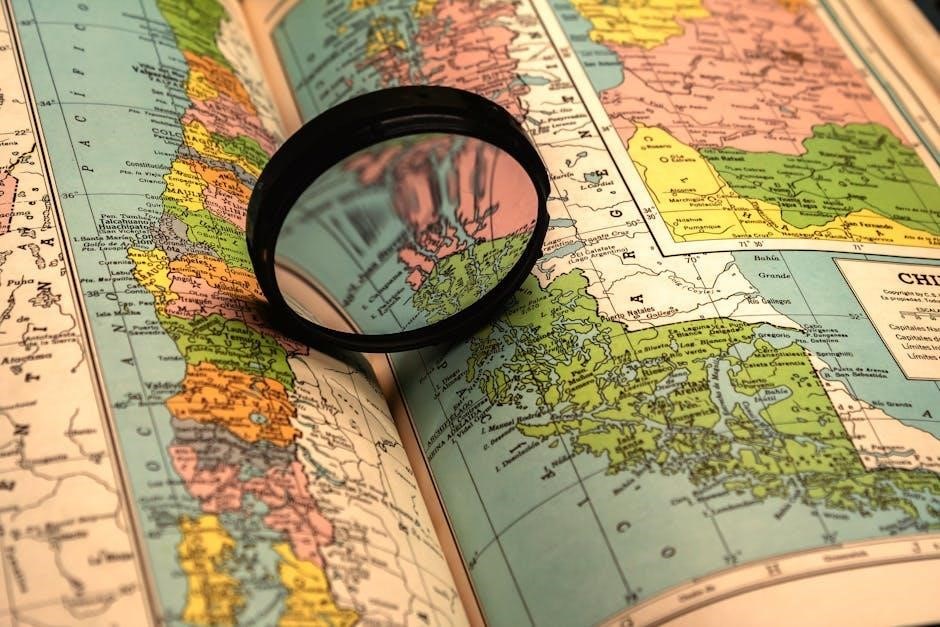
Decolonization and the Emergence of New Nations
Decolonization marked the dissolution of colonial empires‚ primarily after World War II‚ as nations in Africa‚ Asia‚ and the Caribbean sought independence. The decline of European powers‚ weakened by the war‚ and rising nationalist movements fueled this process; The United States and the United Nations supported self-determination‚ while newly independent nations faced challenges like economic underdevelopment and political instability.
Key events included India’s independence in 1947‚ led by Mahatma Gandhi‚ and the wave of African nations gaining freedom in the 1950s and 1960s. Many new nations adopted democratic or socialist systems‚ while others experienced authoritarian rule. The Cold War influenced decolonization‚ as superpowers competed for influence in emerging states.
Economically‚ former colonies often struggled with poverty and inequality‚ while politically‚ they navigated challenges like ethnic conflicts and border disputes. The legacy of colonialism‚ including artificial borders and resource exploitation‚ shaped their post-independence trajectories. Decolonization reshaped global politics‚ leading to a more multipolar world and the rise of organizations like the Non-Aligned Movement.
Overall‚ decolonization was a transformative period‚ creating new nations and redefining international relations‚ though its impact remains complex and far-reaching.
Modern Global Conflicts (1945-Present)

Modern global conflicts since 1945 have been shaped by the Cold War‚ regional tensions‚ and ideological struggles. The Cold War between the U.S. and the Soviet Union avoided direct conflict but fueled proxy wars in Korea‚ Vietnam‚ and Afghanistan. Post-1991‚ conflicts shifted to regional disputes‚ terrorism‚ and civil wars.
The Gulf Wars (1990-1991‚ 2003-2011) highlighted oil-driven conflicts and regional instability in the Middle East. Terrorism emerged as a global threat‚ particularly after the 9/11 attacks‚ leading to the War on Terror in Afghanistan and Iraq. Recent conflicts‚ such as the Russia-Ukraine war‚ underscore ongoing geopolitical tensions and economic sanctions.
Modern warfare also involves cyberattacks‚ drone technology‚ and asymmetric tactics. Global organizations like the UN strive to mediate‚ but challenges persist. Economic and political factors‚ such as resource competition and ideological differences‚ continue to fuel modern conflicts‚ making diplomacy and cooperation essential for global stability.
These conflicts reflect evolving threats and the complexities of international relations in the modern era‚ emphasizing the need for adaptive strategies to address global insecurity.
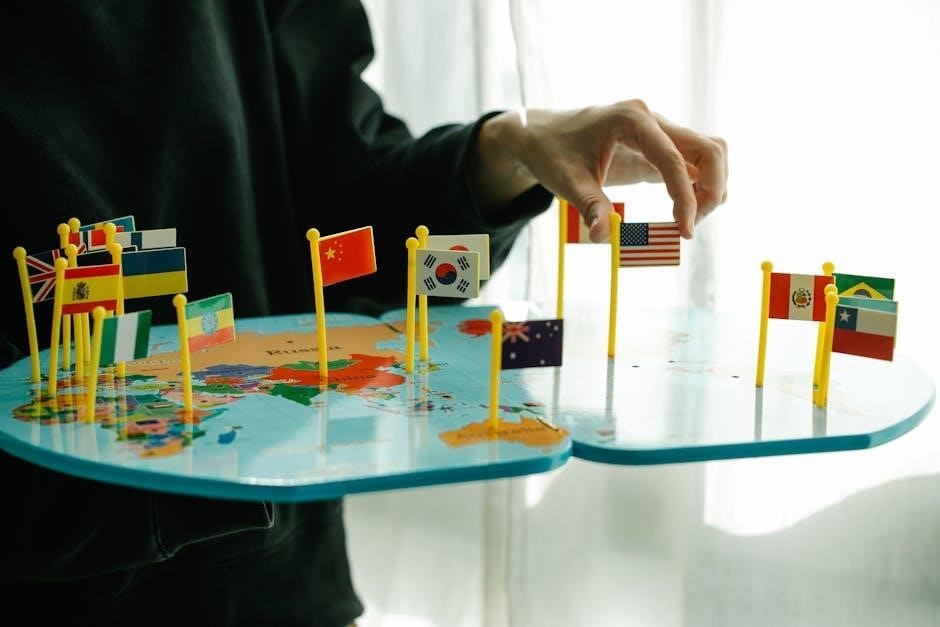
The Role of International Organizations in Global Warfare
International organizations have played a crucial role in addressing and mitigating global warfare since the 20th century. The United Nations (UN)‚ established in 1945‚ aims to maintain international peace and security through diplomacy‚ mediation‚ and collective action. Its Security Council is empowered to impose sanctions and authorize peacekeeping missions to resolve conflicts.
Other organizations‚ such as NATO and the European Union‚ focus on regional security and cooperation. NATO‚ for instance‚ operates under a collective defense framework‚ while the EU promotes political and economic unity to prevent conflict. International courts‚ like the International Criminal Court (ICC)‚ address war crimes and hold individuals accountable‚ promoting justice and deterrence.
Despite their efforts‚ international organizations face challenges‚ including political biases‚ funding issues‚ and limited enforcement powers. Nonetheless‚ they remain vital in fostering dialogue‚ preventing escalation‚ and addressing the root causes of global warfare‚ such as economic inequality and territorial disputes.
Their role underscores the importance of multilateralism in a complex and interconnected world‚ emphasizing collaboration over unilateral action to achieve lasting peace and stability.
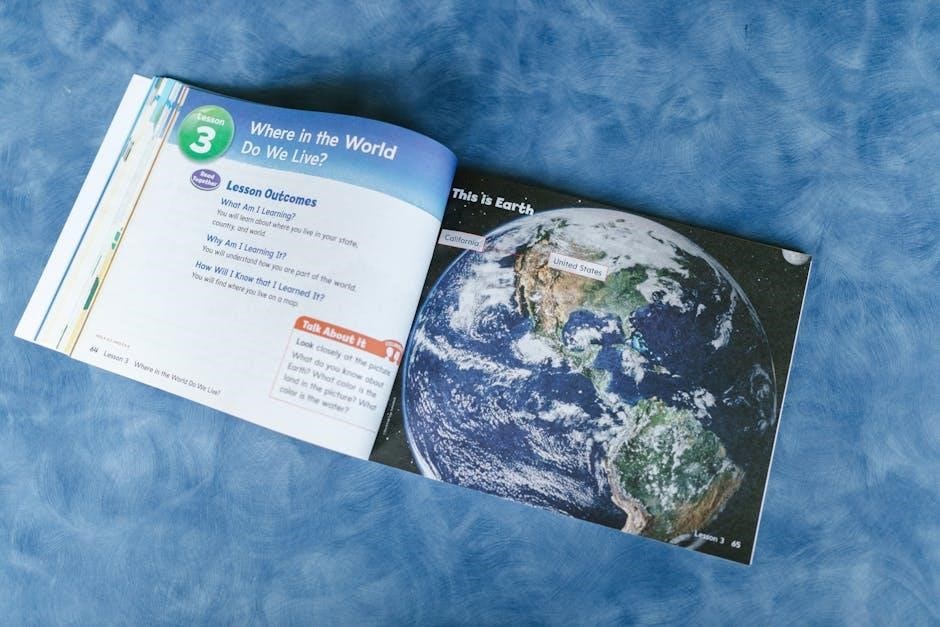
Economic and Social Changes Resulting from Global Warfare
Global warfare has profoundly shaped economic and social landscapes worldwide. The aftermath of World Wars I and II led to significant shifts in global economic power‚ with the United States and the Soviet Union emerging as superpowers. War-induced industrialization boosted production capacities but also drained resources‚ causing economic instability in many nations.
Socially‚ global warfare accelerated demographic changes; Mass migrations‚ labor shortages‚ and the rise of feminist movements emerged as societies adapted to wartime conditions. The loss of millions of lives disrupted family structures and communities‚ leading to long-term social upheaval.
Decolonization in the mid-20th century‚ partly driven by the weakening of European powers after WWII‚ reshaped global politics and economies. Newly independent nations faced economic challenges but also opportunities for growth and self-determination.
Wars also spurred technological and medical advancements‚ improving living standards and healthcare systems. However‚ the human cost of global warfare remains a stark reminder of its devastating impact on economies and societies worldwide.
Technological Advancements in Warfare
Global warfare has driven unprecedented technological innovation‚ reshaping how conflicts are fought and won. World War I introduced trench warfare‚ machine guns‚ and chemical weapons‚ while World War II saw the development of radar‚ jet aircraft‚ and the atomic bomb. These advancements not only increased the lethality of warfare but also expanded its scale and complexity.
The Cold War further accelerated technological progress‚ with the space race and the development of intercontinental ballistic missiles. Modern warfare has embraced precision-guided munitions‚ drones‚ and cyber warfare‚ allowing for more targeted and less destructive conflict strategies. These innovations have transformed military tactics and strategies‚ blurring the lines between traditional and asymmetric warfare.
Technological advancements in warfare have also raised ethical and legal questions‚ particularly regarding the use of autonomous weapons and cyber attacks. As technology continues to evolve‚ its role in shaping future conflicts remains a critical area of study and concern.
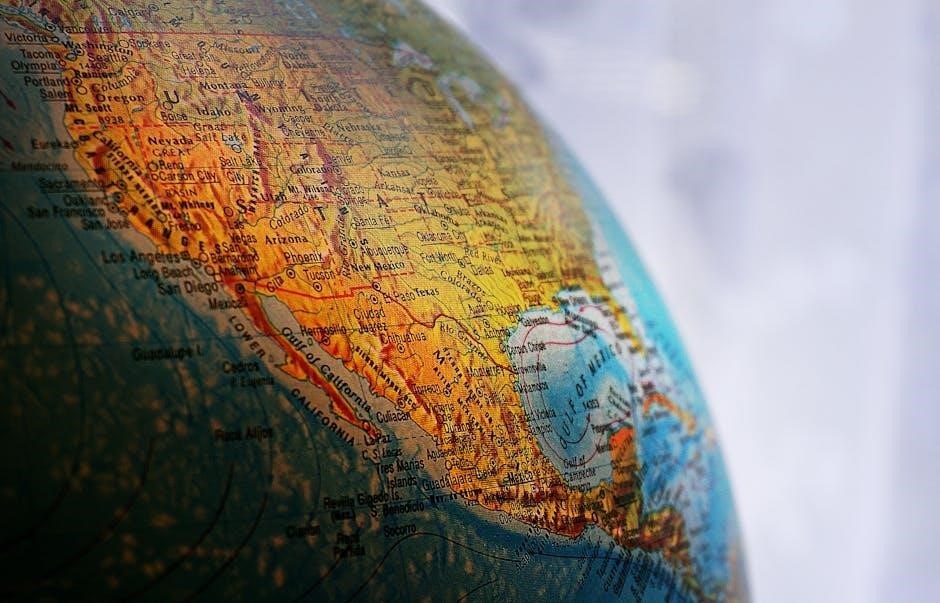
Key Figures and Their Roles in Global Warfare
Several influential leaders played pivotal roles in shaping global warfare throughout the 20th and 21st centuries. During World War I‚ figures like Woodrow Wilson and David Lloyd George influenced political alliances and peace negotiations. In World War II‚ leaders such as Winston Churchill‚ Franklin D. Roosevelt‚ and Joseph Stalin were instrumental in forming the Allied coalition and determining post-war reorganization.
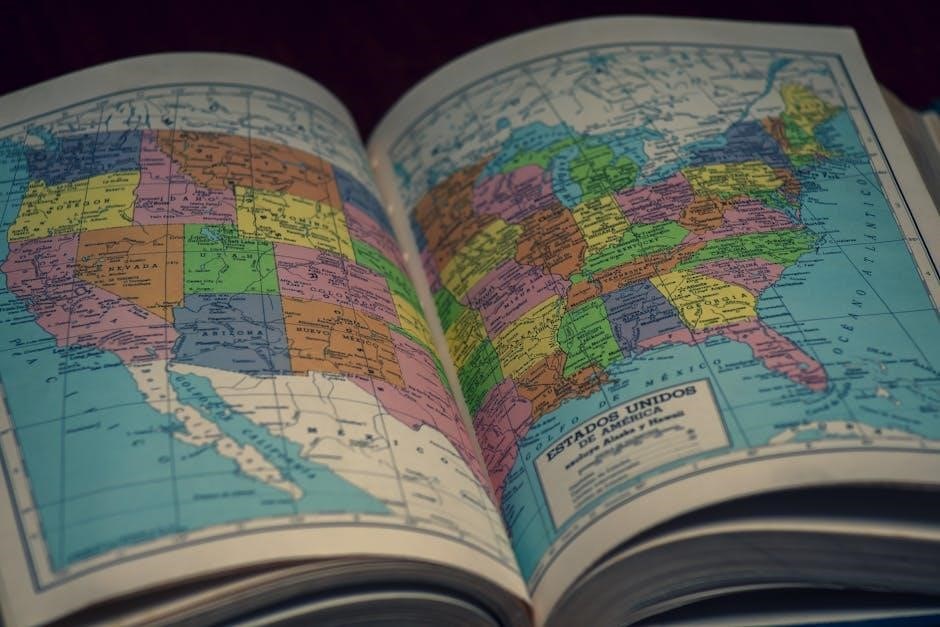
The Cold War era saw prominent figures like John F. Kennedy and Mikhail Gorbachev‚ whose decisions significantly impacted geopolitical tensions and resolutions. In modern conflicts‚ leaders such as George W. Bush and Vladimir Putin have shaped global warfare dynamics through their policies and military strategies.
These individuals‚ along with others‚ have left lasting legacies that continue to influence international relations and military strategies. Their roles highlight the importance of leadership in shaping the course and consequences of global warfare.
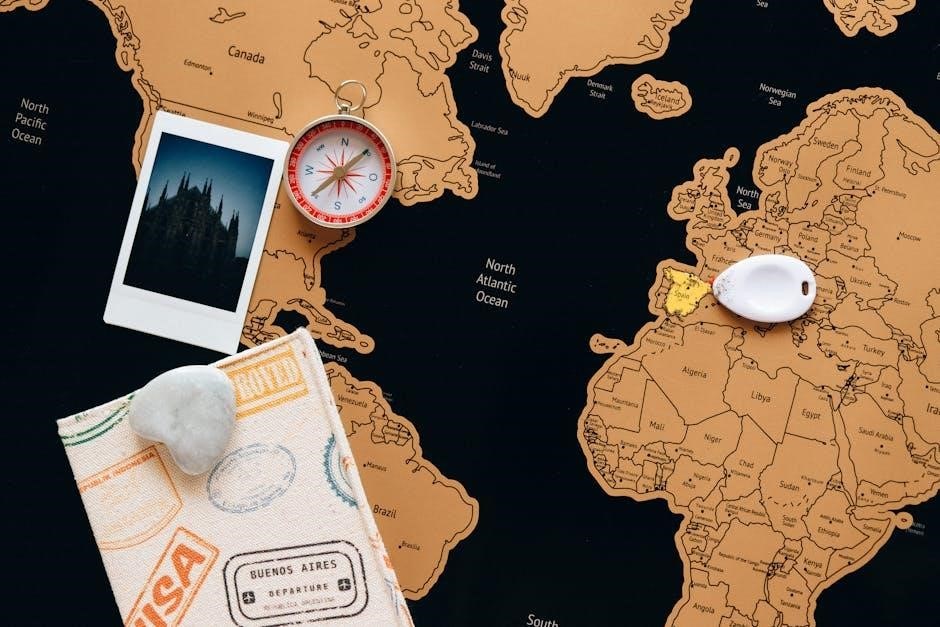
Global warfare has profoundly shaped the modern world‚ leaving lasting impacts on societies‚ economies‚ and international relations. The study of global conflicts reveals patterns of power shifts‚ technological advancements‚ and ideological struggles that continue to influence current events.
From the devastating effects of total war in the 20th century to the rise of international organizations aimed at preventing future conflicts‚ warfare has driven significant changes in global governance and diplomacy. The consequences of these wars‚ such as decolonization and the emergence of new nations‚ highlight the complex interplay of political‚ economic‚ and social factors.
Reflecting on global warfare underscores the importance of understanding historical causes and consequences to address contemporary challenges. It also emphasizes the need for diplomacy‚ cooperation‚ and innovation to foster peace and stability in an increasingly interconnected world.

